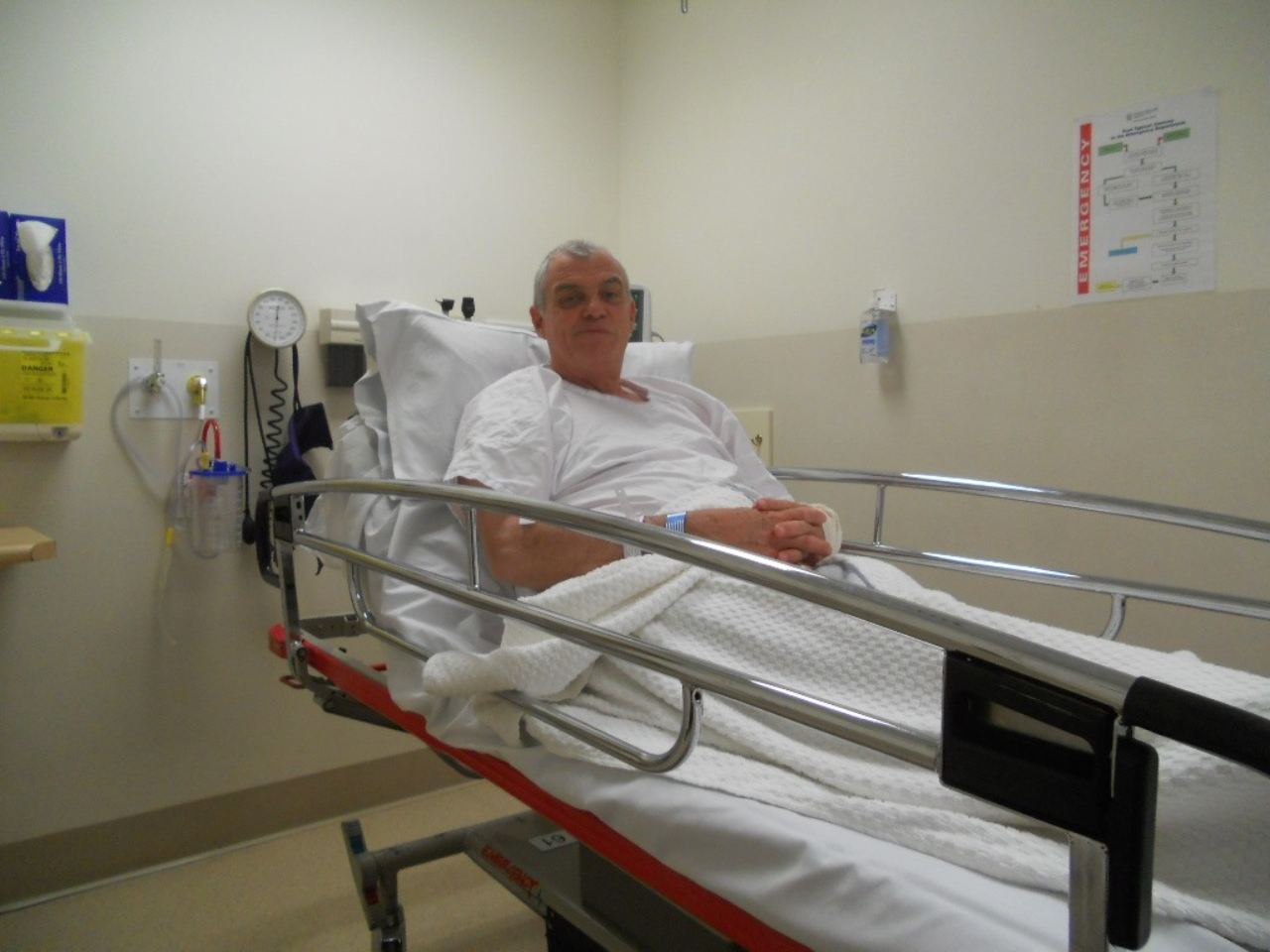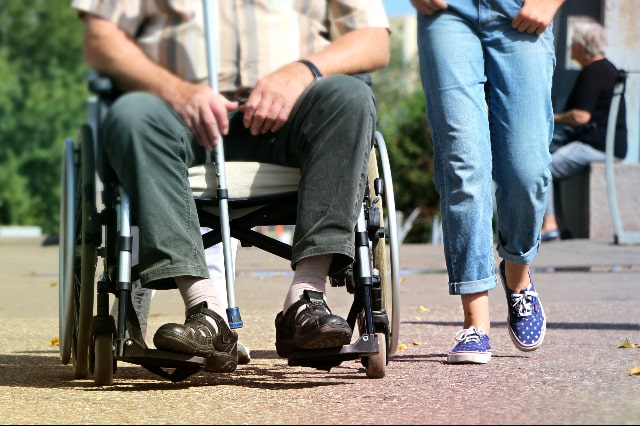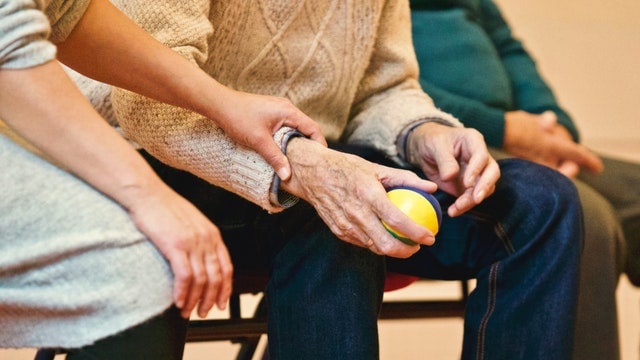
Wrongful Death in Nursing Homes: Understanding Legal Rights and Recourse






Seeking Justice for Wrongful Death in Nursing Homes
Wrongful death in nursing homes occurs when a resident dies due to neglect, abuse, or poor care that should have been prevented. This could include incidents like failure to properly monitor residents, inadequate medical treatment, or unsafe living conditions that result in fatal harm. Essentially, these deaths are avoidable if the nursing home has met its duty to provide proper care.
This issue is important because families who lose loved ones in nursing homes due to negligence are often left grieving while also dealing with the financial and emotional burden of the situation. These tragic deaths raise serious concerns about the quality of care in nursing homes, and many families find themselves in the difficult position of seeking justice and accountability.
At Sabbeth Law, PLLC, we understand how devastating the loss of a loved one can be, especially when it’s caused by something preventable. Based in Vermont, we help families who have experienced wrongful deaths in nursing homes by investigating the circumstances, gathering evidence, and pursuing legal action to seek justice. Our goal is to hold negligent parties accountable and secure compensation for the families we represent, helping them cope with the financial strain and emotional toll these tragic situations cause.

Understanding Wrongful Death in Nursing Homes
Wrongful death in nursing homes is a tragic reality that impacts many families. These sensitive situations arise when negligence or improper care leads to a resident’s untimely death. In Massachusetts and other states, nursing homes have a responsibility to provide safe and adequate medical care. Failure to do so could lead to legal action from affected families.
Negligence might occur due to understaffing or inadequate training within the facility. It’s crucial that staff in long-term care facilities are experienced and well-prepared to address the complex needs of residents. The Department of Public Health often oversees these regulations to ensure compliance.
Legal protections exist for families affected by wrongful death. For instance, those in Vermont can refer to the Vermont Laws for specific statutes related to wrongful death claims. Understanding these laws helps in pursuing rightful claims.
Sabbeth Law, PLLC is committed to advocating for such families. Our team strives to ensure justice for victims and protect the legal rights of their loved ones. We understand the deep impact these losses have, not just legally but emotionally as well. More information about the processes involved can be gathered from our insights on wrongful death claims in Vermont.
A family’s loss due to nursing home negligence is not just a legal battle; it affects every aspect of their lives. Knowing one’s legal rights and how to assert them is a crucial step toward justice.
Contact UsCommon Causes Of Wrongful Death In Nursing Homes
In nursing homes, neglect can have devastating consequences. Inadequate staffing often leads to insufficient care, resulting in malnutrition, dehydration, or untreated infections. Each of these factors can contribute to a wrongful death, leaving families heartbroken and seeking justice.
Nursing home abuse is another critical concern. Physical abuse can result in severe injuries like a broken leg, which can be life-threatening for frail residents. Emotional and psychological abuse also diminish overall well-being, potentially hastening death.
Falls are a prevalent hazard in nursing homes. Slippery floors, poor lighting, or lack of support can lead to serious injuries. These incidents may result in fatalities, especially when prompt medical attention is delayed or denied.
Medical malpractice involves errors such as improper medication dosages or neglect in addressing medical conditions. Such errors highlight failures in providing essential care. In critical situations, these lapses may result in wrongful death.
Failure to adhere to regulations, such as Vermont’s nursing home reporting requirements, can lead to oversight and poor management. Non-compliance often masks systemic issues that endanger residents’ lives.
Negligent care, including the retention of foreign objects during medical procedures or lack of proper infection control measures, contributes significantly to wrongful deaths. Addressing these issues requires awareness and systematic changes within care facilities.

Recognizing The Warning Signs
Identifying the warning signs in nursing homes is crucial for preventing wrongful deaths. Bedsores, also known as pressure ulcers, are a common indication of neglect. These injuries may suggest improper patient positioning and inadequate care.
Malnutrition and dehydration are critical indicators of potential neglect. Unexplained weight loss, sunken eyes, or constant thirst may signal that a resident’s dietary needs are not being met. Observing these signs at an early stage is crucial.
Physical abuse can manifest as unexplained bruises or fractures. Similarly, signs of sexual abuse may include torn clothing or unexplained infections.
Urinary tract infections can arise due to neglectful hygiene practices. Regular checks and hygienic care can help mitigate the risk.
In some cases, more severe warning signs, such as hypoglycemic shock, which is a severe drop in blood sugar levels, can occur. This can be life-threatening if not treated promptly.
If we suspect any of these warning signs, it’s important to take immediate action. Consult related legal guidance on practice areas for further action. Addressing concerns promptly can help protect loved ones from harm.
Contact UsLegal Rights Of Families After Nursing Home Wrongful Death
When confronting a wrongful death in a nursing home, families face not only emotional distress but also complex legal challenges. In Vermont, family members may pursue a wrongful death lawsuit to seek justice and compensation. The legal standing typically includes spouses, children, and sometimes other dependents or representatives.
The Vermont statute provides specific guidance on who can file a wrongful death claim. Understanding these rights is crucial in ensuring that the family’s legal options are fully explored and pursued effectively.
The statute of Limitations is an important factor in these cases. In Vermont, there are time limits within which a family may file their claim, typically starting from the date of the death. It’s vital for us to act promptly to preserve our rights and opportunities for justice.
Consulting with an experienced injury lawyer can greatly help navigate the complexities of nursing home claims. Such professionals provide insights and strategies that align with the specific details of the case, empowering families to make informed decisions about their legal path.
Pursuing a wrongful death claim is daunting, yet it’s a necessary step for holding negligent parties accountable. Through this process, we ensure that families receive the care and respect they deserve, honoring their loved one’s memory while seeking rightful compensation.
Proving Liability In A Nursing Home Wrongful Death Case
Establishing liability in a nursing home wrongful death case requires demonstrating negligence through specific elements. Duty of care is the first aspect you should prove, showing that the nursing home had a legal obligation to ensure safety and the well-being of its residents.
Next, there may be a breach of duty. This involves demonstrating how the nursing home failed to meet the established standards of care, leading to harmful outcomes. Detailed medical records often play a crucial role in this phase, documenting lapses in care or neglect.
Causation links the breach directly to the resident’s death, establishing that the neglect or misconduct specifically caused the fatal outcome. Comprehensive evidence gathering, including testimonies and documented inconsistencies, is essential here.
Finally, we prove damages, which outline the losses suffered by the deceased’s family due to the wrongful death. These damages can include not only medical and funeral expenses but also emotional and financial impacts.
Engaging medical and forensic professionals is critical. Their evaluations provide insights into how the breach directly resulted in harm. Professionals can testify to the gravity of lapses in care, offering unbiased support in substantiating claims of negligence.
Mediation sometimes serves as a path to resolve disputes without a full trial. It involves negotiating with the nursing home’s legal team to reach a settlement that acknowledges liability and provides compensation for losses experienced by the family.
Compensation In Nursing Home Wrongful Death Cases
Navigating the aftermath of a wrongful death in a nursing home can be overwhelming. Compensation seeks to alleviate financial burdens and acknowledge the emotional toll on families. Settlements often vary based on individual circumstances, offering financial recovery through several types of damages.
Economic Damages covers expenses such as medical bills or funeral costs. These are often more straightforward to calculate, providing a clear financial path for affected families.
Non-economic damages focus on intangible losses, like pain and suffering or loss of companionship. The damages are for the emotional and psychological impact on those left behind.
In other cases, punitive damages can be pursued. These can be awarded in instances of gross negligence or egregious misconduct by the nursing facility, acting as a punishment and a deterrent against future infractions.
On average, wrongful death settlements in nursing homes can be in the range of $406,000, with some cases exceeding $1 million. This variation often depends on the severity and nature of the neglect involved.
Our role as legal professionals is to guide you through this process, ensuring all facets of your case are addressed. We strive to help families see justice served and secure the compensation they deserve as they navigate their loss.

How Sabbeth Law, PLLC, Can Help
It’s devastating to lose a loved one through wrongful death in a nursing home. At Sabbeth Law, our team focuses on providing comprehensive legal representation in these sensitive cases.
We have extensive experience in wrongful death and nursing home cases. We are committed to securing fair compensation for grieving families through diligent and strategic legal work.
Client-Centered Advocacy
Our approach includes personalized attention from the initial investigation to courtroom representation. We aim to ensure that every client’s unique story is heard and respected.
As we emphasize compassionate and thorough advocacy, our nursing home attorneys are ready to assist those in Vermont and New Hampshire, providing guidance and experience.
Encouraging Action
We urge families to seek legal assistance promptly to protect their rights. Our experience and compassionate approach can be essential support in navigating these challenging times.
Contact UsPractice Areas
Client Testimonials
LUKE PARMENTER“Immediately after my son’s injury at work, he was treated poorly. Over the course of the next few days it became even worse, so I called Mike and he and Crystal have been absolute lifesavers during the process. Mike is not your typical stuffed suit lawyer who only cares about the bottom line he genuinely cares about his clients and his assistant Crystal is beyond amazing! My thanks to you both!”
Client Testimonials
“Immediately after my son’s injury at work, he was treated poorly. Over the course of the next few days it became even worse, so I called Mike and he and Crystal have been absolute lifesavers during the process. Mike is not your typical stuffed suit lawyer who only cares about the bottom line he genuinely cares about his clients and his assistant Crystal is beyond amazing! My thanks to you both!”
LUKE PARMENTER
“I could never ask for a better attorney, to fight for me, to believe in me, and have faith in me, than what I found in Mike Sabbeth, He doesn’t treat you like a client, he treats you as if you are one of his own family members, He will fight for you, with all he has, and is ALWAYS up front and honest with you about everything!”
SANDRA DRUGE
